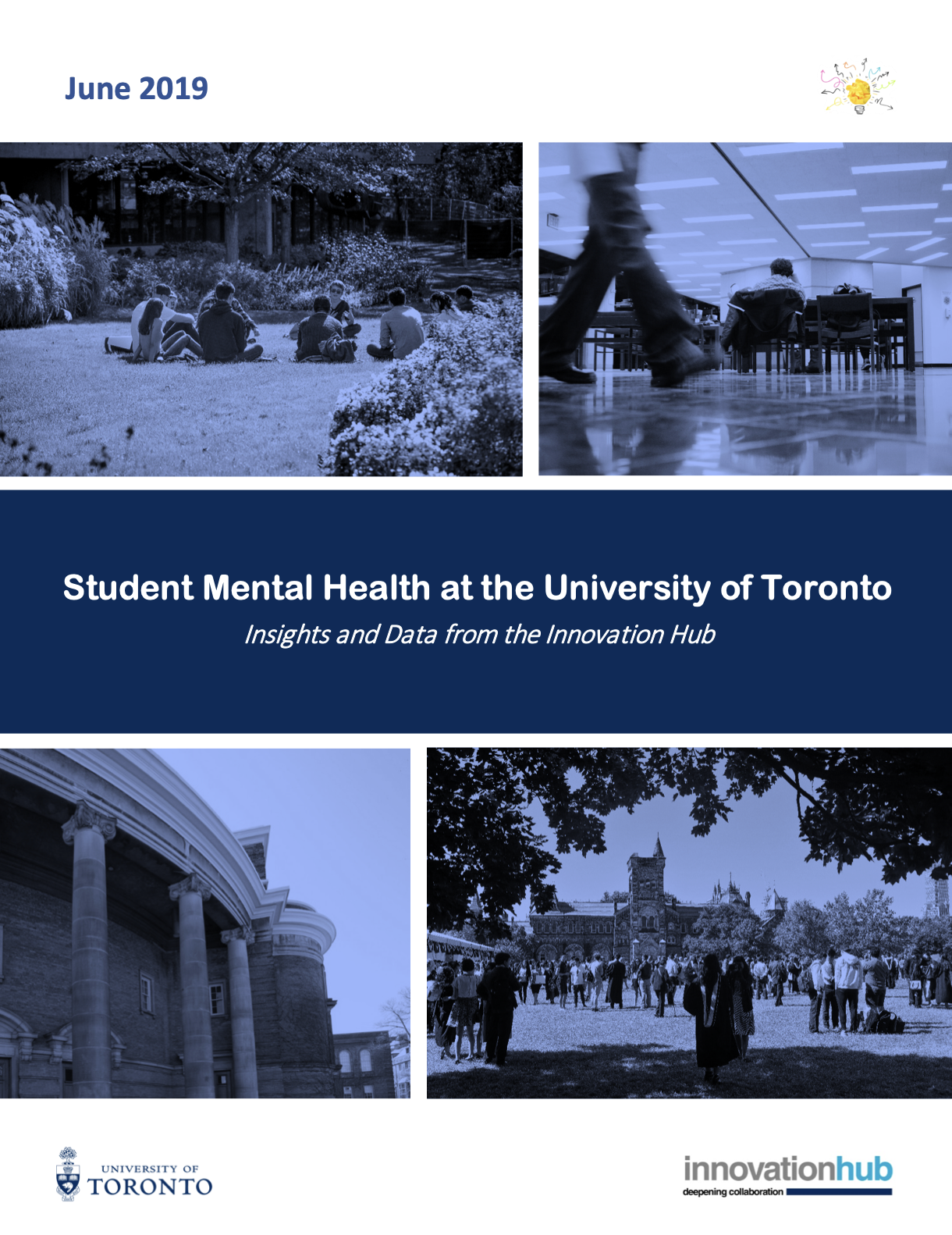Student Mental Health at the University of Toronto
Since January 2019, the Innovation Hub has been re-examining the insights and data collected from its previous (and ongoing) partnerships and events in hopes to shed light on potential paths forward regarding student mental health and wellness at the university. Recent numbers show a marked increase in student stress and related mental health challenges over the years; something that Innovation Hub data has also highlighted.
Fall/Winter 2019 - 2020
How can we better understand students' mental health at U of T?
Looking at U of T undergraduate enrolment alone, the current population of over 70,000 students outnumbers that of all eight Ivy League schools combined. Thus, to understand students' mental health needs is difficult. To tackle this challenge, the Innovation Hub teams have completed over 300 empathy-based interviews and conducted many additional data-sharing events with students across the university in the last three years. Outlined here is a summary of the major mental health themes and challenges observed consistently throughout our interviews with students.
KEY FINDINGS
Designing for Resilience Together
Taking a community development approach grounded in empathy, listening, and dialogue will not only help to bring clarity: it will serve as a learning and healing process for those involved as they discover that they are not alone.
The scope of the challenges before the staff and faculty of U of T extend beyond that of simply administering top-down services and policies. The richest possible future lies in addressing the roots of these issues through new approaches that put students at the centre of the process.
Many common challenges at the U of T have become apparent throughout the Innovation Hub’s past few years of experience in student-centered project work and are outlined in three key themes explored in this report:
- A Narrative of Excellence
- Finding Community
- Navigating Resources


A Narrative of Execellence: Inspired by the grand narrative of success attributed to the university, prospective students feel as though admission grants them membership into a prestigious community. While this is a point of pride, it also carries the weight of expectation. Believing U of T to be a prestigious institution home to the exceptional, students feel a unique sense of isolation from their peers when their experience does not align with that narrative. Rather than regarding challenge and failure simply as a lack of knowledge or skill and part of the learning process, it also raises concerns about belonging to the university community. Oftentimes, the reputation that initially drew students to the university becomes a source of alienation and shame rather than pride. Struggling students do not see their experiences and hardships reflected in stories focused exclusively on success.

Finding Community: Due to the large student population and the high percentage of commuters, many students feel as though they cannot connect with their peers. This theme works in tandem with the aforementioned theme of excellence, creating a culture wherein students feel like outsiders. The routine navigation of the downtown St. George campus was often described as a profoundly lonely experience, lacking in meaningful human interactions or close ties to other students, staff, or faculty. Recent research suggests that access to social support systems contributes positively to psychological well-being and resiliency

Navigating Resources: While U of T is home to an array of student facing services and service providers, many students struggle to access these resources. The experience of navigating student resources can further compound the feelings of isolation highlighted in the preceding sections of this report. This is due to a number of factors including the stigmatization of asking for help and identifying and locating appropriate resources in a highly decentralized campus. Due to the university’s culture of excellence, students often feel as though acknowledging that they need support is a failure in and of itself. There is a widely held belief that successful students are self-sufficient and do not have to rely on external aid. When students do engage with institutional support systems, it is often accompanied with feelings of isolation.
